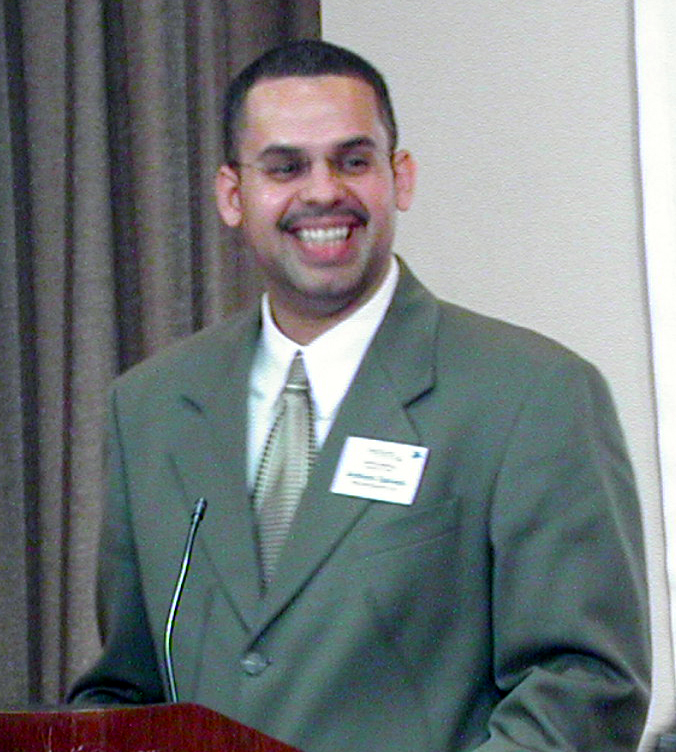NutritionQuest
Project URL: http://teachersnetwork.org/teachnet-lab/motthallschool/asalcedo/
NutritionQuest/nutritionindex.htm
How it works:
NutritionQuest is a Culture Quest on nutrition. Students conduct
Internet research and investigate topics that answer such questions as: What constitutes proper nutrition?
What is obesity? How does one become obese? What foods should be eaten
in a healthy diet? What are nutrients, and which are essential to your basic diet? How many calories should
be consumed? While doing this, students keep track of their calorie intake for at least three days and graph the results in Excel.
The results can be compared within the class or with a Japanese class
found online through Epals. Students also compare Japanese and American diets and
learn what items can be substituted in each country's food pyramid. After completing initial research
into the site, students are given a quiz based on relevant topics.
Students should be given
the questions at the beginning of the unit to guide their research as well as
provide concise expectations regarding what they should learn while researching the NutritionQuest site. When students have completed the initial research and have taken
a quiz, they develop a research question and create websites with a certain amount of
interactivity. Examples are provided throughout the entire site that
give insight as to how to create their own site. Every student in a group
must create at least one activity. These activities include: word walls on vocabulary
learned throughout their research, crossword puzzles, creating an activity page,
word search, word scramble, a quiz in PowerPoint on their topic, and a poll relating to their research. NutritionQuest is fun and educational!
Standards addressed:
Students learn essential concepts about nutrition and diet, and how to maintain and promote personal health,
and understand the relationship of family health to individual health.
Also, they become familiar with availability and effective use of health services, products, and
information.
Materials
used:
To work on this project, students need a computer with Internet
access, books, and encyclopedias. They will also use PowerPoint,
Excel, and web page authoring software, a computer projection device,
and an e-mail account (preferably Epals, which is free).
The students:
This project is suitable for students from grades 7 through 12. It can
also be done with sixth graders if the class is highly motivated and has a
good sense of how to create web pages. NutritionQuest is intended for students
who have some background working with computers. Depending on the student
knowledge base in technology, the project can take more time to
complete.
Overall value:
This project is highly informational and innovative. It provides students with a highly interactive and interesting medium to learn about
nutrition, obesity, and proper diet. These topics are highly
relevant today, given the fact that close to half of students in the United
States are overweight.
Tips:
Tips for teachers are provided in the teacher tips page. Go through the site before taking students on the quest.
It will be enjoyed by all, including the teacher.
|

About the teacher:
Anthony Salcedo is laptop coordinator at the Mott Hall School, the first
inner city public school to start a laptop program. At the school, every
student carries a laptop computer. He was one of the keynote speakers at
the Microsoft Laptop Summit 2000 in Seattle, Washington. He has also
presented at other technology conferences around the country and has received recognition from two superintendents for his achievements.
Anthony is also a certified NFTE instructor and has worked as a
translator in the Caribbean for a division of the United Nations. He
was an adjunct professor for NYU and Mercy College and is in his 11th year of teaching in the NYC public
school system.
E-mail:
asalcedo@motthall.echalk.com
Subject Areas:
Health/Physical Education
Science
Technology
Grade Levels:
7-12
|